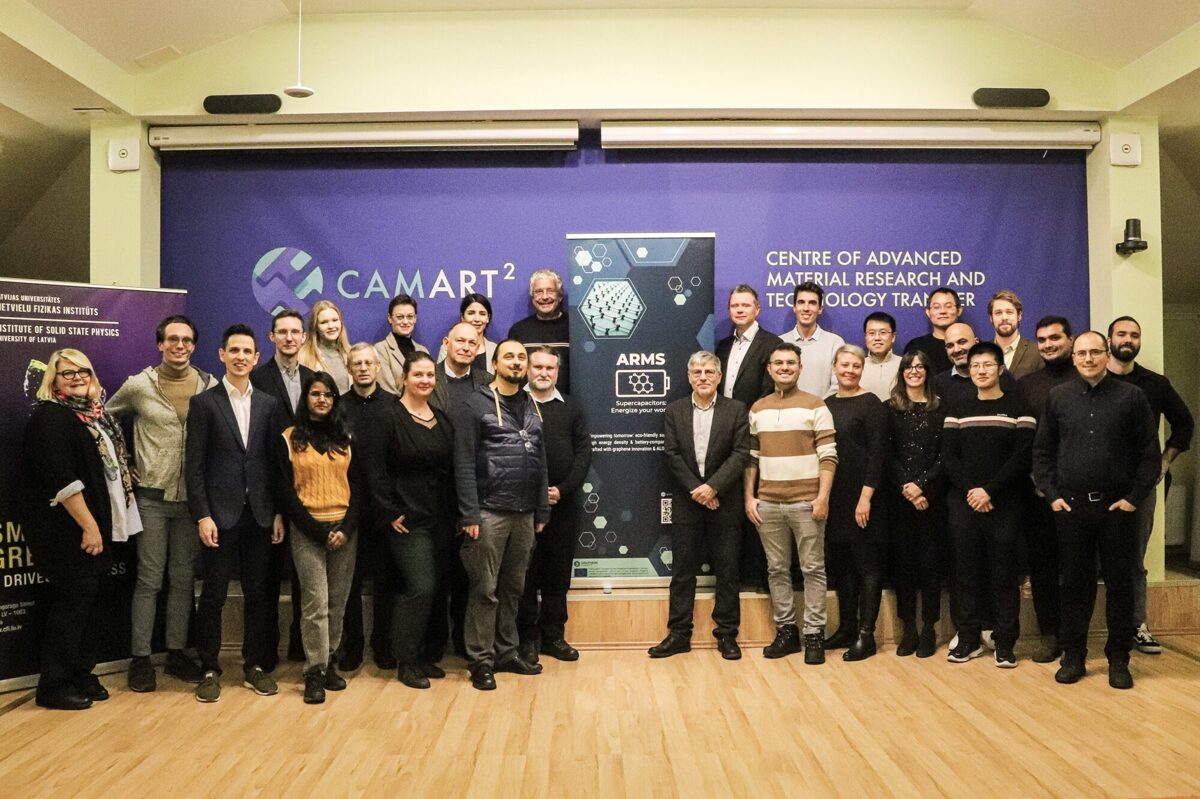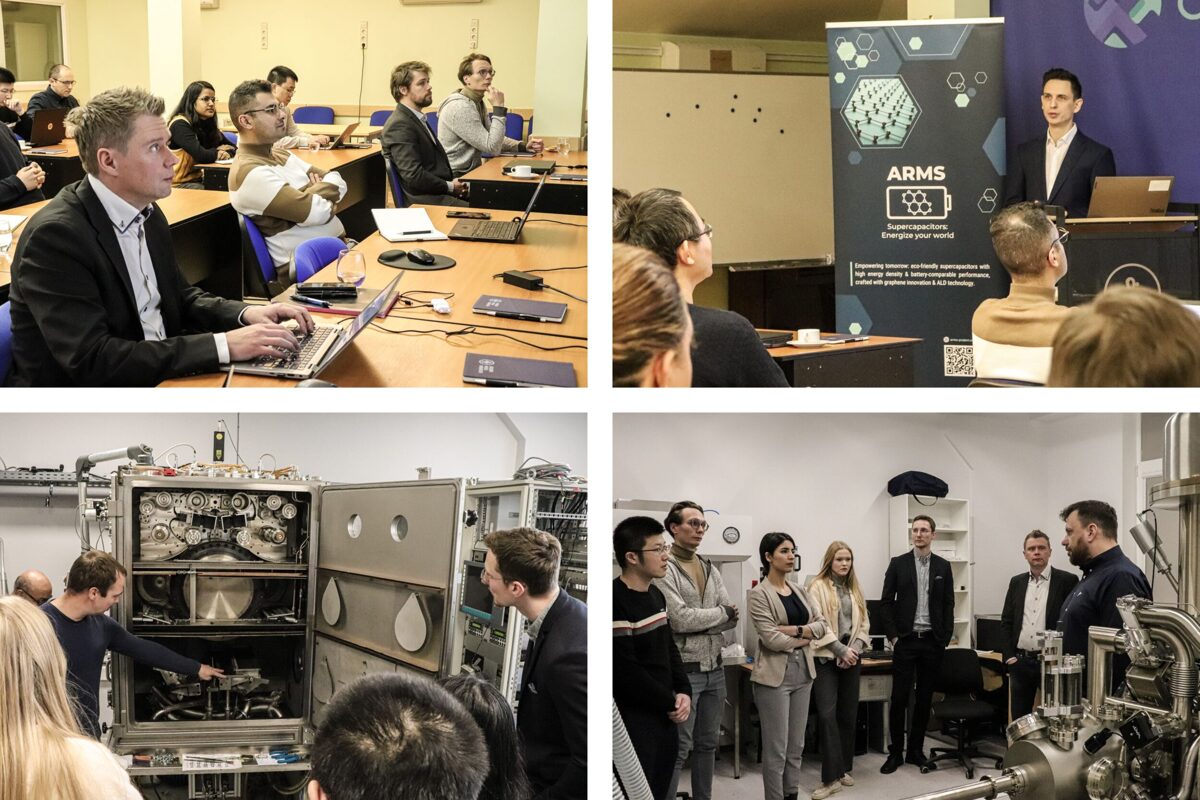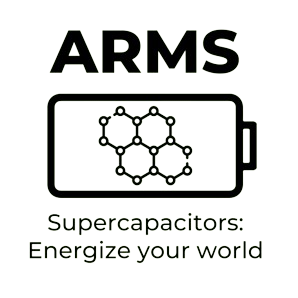ARMS consortium partners gather for the Consortium Meeting in Riga


On November 5-6, all consortium partners and members of the External Advisory Board convened for the 3rd Consortium Meeting at the Institute of Solid State Physics, University of Latvia. This event marked a significant milestone in the ARMS project, bringing together experts dedicated to advancing energy storage technologies.
The ARMS project aims to develop and integrate advanced materials and processes for producing eco-friendly supercapacitors. By enhancing the performance and sustainability of energy storage devices, the project seeks to contribute to breakthroughs in materials engineering and innovative energy solutions. These objectives are essential in addressing global energy challenges and promoting environmentally friendly technologies.
To facilitate our work, the project is organized into eight comprehensive work packages, each led by dedicated partners from the ARMS consortium:
- WP 1 Synthesis of Raw Graphene-Containing Carbon-Based Electrode Materials (led by the Institute of Solid State Physics, University of Latvia) focuses on developing new materials that can improve the efficiency of supercapacitors.
- WP 2 Electrode Fabrication (KTH) – working on creating electrodes that maximize performance and longevity.
- WP 3 Electrode Booster (ALD) – explores advanced techniques to enhance electrode properties (Tampere University).
- WP 4 Electrolytes (led by InnoCell) – working on formulating electrolytes that complement the new materials and improve overall device performance.
- WP 5 Supercapacitor Device Integration and Demonstration (CIDETEC) focuses on integrating the various components into functional supercapacitor devices and demonstrating their capabilities.
- WP 6 Sustainability Assessment (led by the University of Southern Denmark) evaluates the environmental impact of the materials and processes developed throughout the project.
- WP 7 Dissemination, Exploitation, and Communication (Beneq) – effectively communicates the findings and progress of the project and ensures that results reach relevant stakeholders and the public.
- WP8 Project Management and Coordination (Tampere University) oversees the overall organization and coordination of project activities to ensure smooth progress.
During the Riga meeting, partners had the opportunity to present their progress and findings from the project's first year. The discussions surrounding the results of the initial four work packages were particularly engaging as participants evaluated their achievements and strategized for future collaborations on technical and research tasks. Insights and feedback from the External Advisory Board members, Dr. Martin Krebbs (founder of PrintaBattery and member of the Organic and Printed Electronics Association) and Dr. Jakob Heier (the Swiss Federal Laboratories for Materials Science and Technology (Empa)), provided valuable perspectives that will guide our next steps.
At the end of the first day, project partners enjoyed a guided tour of the Institute of Solid State Physics laboratories. This visit allowed the ARMS consortium members to witness firsthand the state-of-the-art equipment and research facilities available at ISSP UL, enhancing their understanding of the resources utilized in WP1 research.
Following a busy and productive first day, all eleven consortium partners gathered for a convivial dinner, where discussions about the project’s research and development continued in a more informal setting. This gathering fostered collaboration and strengthened the relationships among team members.
We extend our heartfelt thanks to ISSP UL and the city of Riga for their warm hospitality during our stay. We look forward to continuing our work together and gathering again next year in Denmark, where we will further our mission to innovate in eco-friendly energy storage solutions!
